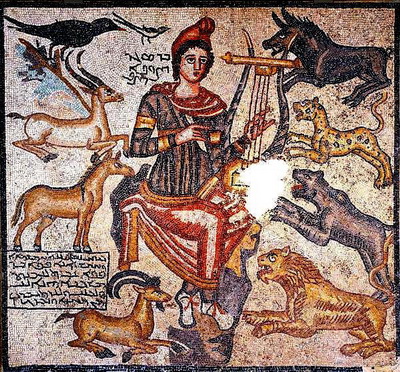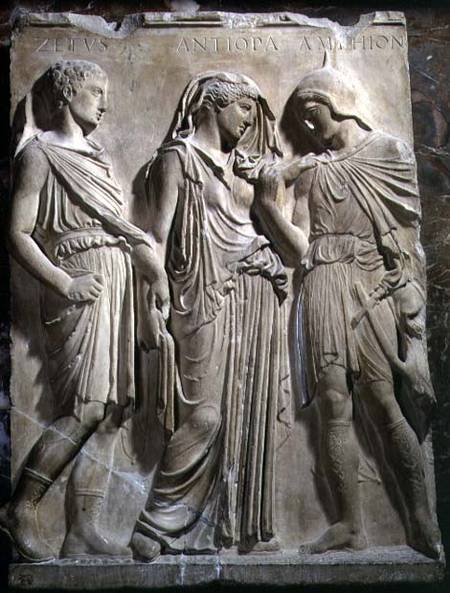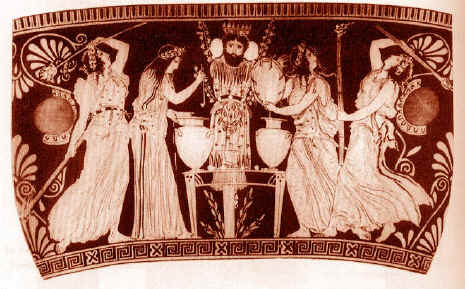The philologist Helena Garantoydi.
 To paggaio mountain is well-known from the mythological years. Gold made the tragedy of Euripides ' Rhesus "to the name" condition with gold volumes, whose land hides Silver ". For centuries the rich mines of provided in great abundance of gold and silver and were an attraction for many peoples and tribes in around pageOn region.
To paggaio mountain is well-known from the mythological years. Gold made the tragedy of Euripides ' Rhesus "to the name" condition with gold volumes, whose land hides Silver ". For centuries the rich mines of provided in great abundance of gold and silver and were an attraction for many peoples and tribes in around pageOn region.
Apart from the gold of, pangeo connects with a "treasure trove" myths concerning two important aspects of the ancient world, the Dionysian religion and Orphism.
The Thraki, in the mythical perception was an area much wider than the known geographical area. (The THRACIANS, We were the people that already from the archaic years constituted the bulk of the population in General and of Elevation between the Strymon and Nestos country). For the Greeks of the South was the site of’ where was the brash Boreas with his children, Boreades and Chioni them, and the ferocious war God Mars. But it was also the place of Orpheus, of Moysaioy, of thamyri and Eymolpoy, I had teach people the divine mysteries and music.
Thrace was the place where he was born and lived one of the Twelve gods, ARIS. Savage and aimoboros, like was he God, He left offspring like Tirea, Lycurgus and Diomedes, they stayed in the memory of people like Kings of Thrace, full of cruelty and barbarism. According to mythology the name of pageOn got by Pangeo, the son of Ares and Kritoboylis, who because he could not endure the pangs of conscience about incest that unknowingly committed with his daughter, He committed suicide on the condition that, as for all this informs us the Geography of Thrace of Meletiou.
Pliny mentions the tradition that first discovered the precious metals of the Punic origin Paggaio Cadmus who once arrived with his own in Thrace, where the locals were friendly and offered hosting. Along with Cadmus had started from Phoenicia and someone Thassos, son of Poseidon when they arrived in Thrace, passed in’ a nearby island and built city. Since then the island got its name and is called Thassos. In Thrace kadmos learned people to make gold through the mountain Pangeo to make with this various knick-knacks. Taught them and other arts that he knew from his hometown. According to this tradition the name of pageOn took from the Phoenician Word paga, that meant meeting.
 Over at Pageo and starring the great God of Thracian, Dionysus or Bakcho, played the tragic myth of Ember King Lycurgus. Lykourgos, He reigned in Idwnoys, near the Struma, opposed to the worship of Dionysus, attacked the Bacchae sequence and threatened the life of God himself. Little Dionysus himself from the fear of dived in the sea, where Thetis the accepted shaky on her lap. Then the wrath of Zeus fell on Lycurgus who was blinded and not long to die, locked up in a cavern of Paggaio by Dionysus. According to another version of the myth of Dionysus himself rocked the brakes and put him to massacre the same child, thinking how to prune a grapevine, and that after this the Edoni, to restore the fertility of their land that was lost, the tied up in their mountain pangeo, where wild horses the devoured. Over at Pageo still say that a native, the Charops, helped Dionysus to beat and kill the Lycurgus, how he, getting the power according to the will of God winner, spread the worship of and how he taught his son Oiagro the Dionysian rituals, later his son Oiagroy, the Orpheus formed and systematized, so that became widely known as Orphic Mysteries.
Over at Pageo and starring the great God of Thracian, Dionysus or Bakcho, played the tragic myth of Ember King Lycurgus. Lykourgos, He reigned in Idwnoys, near the Struma, opposed to the worship of Dionysus, attacked the Bacchae sequence and threatened the life of God himself. Little Dionysus himself from the fear of dived in the sea, where Thetis the accepted shaky on her lap. Then the wrath of Zeus fell on Lycurgus who was blinded and not long to die, locked up in a cavern of Paggaio by Dionysus. According to another version of the myth of Dionysus himself rocked the brakes and put him to massacre the same child, thinking how to prune a grapevine, and that after this the Edoni, to restore the fertility of their land that was lost, the tied up in their mountain pangeo, where wild horses the devoured. Over at Pageo still say that a native, the Charops, helped Dionysus to beat and kill the Lycurgus, how he, getting the power according to the will of God winner, spread the worship of and how he taught his son Oiagro the Dionysian rituals, later his son Oiagroy, the Orpheus formed and systematized, so that became widely known as Orphic Mysteries.
Orpheus is a strange mythical figure, without clear hero traits, God or semi-God. Characterized as a "charmer music from AMA and divination", but it was also rapporteur of certain secret ceremonies, religious poet, Prophet and priest. Additionally honored in his grave with sacrifices as a God and not enagismata like the heroes. Descended from Thrace and acted either in the region of Pieria, where there was the tomb of, whether in the area of Mt. Paggeo and eastwards to the River Ebro.
Orpheus was famed for his performance in music, in chant and in kitharwdia. The length of the hoist into a symbol of kitharwdias, unsurpassed by later masters of the kind. Emblem of s.’ all visual depictions was the lyre that sometimes the clutching the knees over the chords and singing and sometimes in hand as simple emblem.
Orpheus after the descent into Hades, Re’ where failed to restore the Eurydice, He returned to the upper World pained, and seven days roamed unspoken without food or mourned on the banks of a river. By then he was indifferent to every woman and tapeinwne as the approaching. Some say that he didn't want to live alone and committed suicide. When the Orpheus but death of their Prophet was their God as her horrible Zagrea. In the most authentic version DIONYSOS who recently had passed with the sequence of play "Bacchae" by Asia minor in Thrace find the perifroniti of the mysteries of Orpheus and put the Bacchae, known in Thrace as "Bassares" or "Bassarides" to the "break" flying here and there the members of. The muses gathered its members and buried.
 Others say that he was executed by the Orpheus of the Thracian women who ekdikithikan either because the excluded from the sacraments he founded, either because the estranged from their men to enter the children's love in Thrace. According to another view, Venus had revolutionized women's Thracian to dismember, while others say that Zeus with Thunderbolt killed Orpheus because in the mysteries he founded reveal people occult truths about the afterlife.
Others say that he was executed by the Orpheus of the Thracian women who ekdikithikan either because the excluded from the sacraments he founded, either because the estranged from their men to enter the children's love in Thrace. According to another view, Venus had revolutionized women's Thracian to dismember, while others say that Zeus with Thunderbolt killed Orpheus because in the mysteries he founded reveal people occult truths about the afterlife.
The new Dionysian mysteries, as the formed Orpheus, both had significant differences from the mysteries of ecstatic Dionysian worship, so the orfikoi considered themselves followers of a different religion (If again Dionysian). In the Centre of the teaching he entered the so-called ascribed to Dionysus Zagreas, son, in the "sacred ground" of the Orphic, of Zeus and goddess of the underworld Persephone. The Titans, the kakoyrges divine beings who were defeated by Zeus in the Titanomachy, they found opportunity to avenge the slaying his son Jupiter who was still an infant. Zagrea Dionysus dismembered and ate raw flesh of, Apart from his heart that managed to save Athena. The Titans after their katakeraynwthikan the felony by Zeus, and their ashes were created by people. The orfikoi say that people had in them the divine element (because the Titans had faei Dionysus Zagrea) but had the beastly or villain "Titanic nature" (because they were created to be out of the ashes of the Titans). The Orphic life (with fasting or abstinence from animal foods and with religious katharmoys) had the purpose to reinforce in them the divine element (the soul) and to bind or to deaden the Titanic nature (animal or bodily desires).
According to this faith, the actual nature of man, that divine exists within the, the has with the soul, that after death there is sinking like a fleeting – shadow on moldy Hades, only need to give account for its actions and required to pass a series of births, you bring or back in her homeland, or divine eternal damnation. This move he wanted to lead the man to the catharsis of his soul, to release from the physicality and in constant Union with divinity.
Unlike fans of Dionysian worship orgiastikis believed in the value of the wmofagioy: The Maenads, kyrieymenes from the Dionysian fury, diamelizan an animal that was the incarnation of the God Dionysus. Anyone eating raw a little of the meat of this animal "was bringing in of God", and it was believed that anakainize man exeygenize his life and. These two sects of Dionysian worship coexisted in historic times, but relations of fans has always been hostile.
Dionysus is, as we all know, God of wine and fertility and vegetation. The orgies of the God be celebrated every two years in early December on Parnassus. The word means projects sacred Orgies, religious ceremonies. Only women organized in troupes, they were taking part in’ These. Were the maenads or Bacchae or thyiades, holding in one hand a lit torch and in the other the thyrsos a stick decorated with vine leaves and Ivy and m’ a pinecone on the edge – and performed Orgies, who would say that were falling into religious hysteria. Rose running in the darkness and cold of winter night on wooded slopes and peaks of the mountain, While the drums and the flute came with their dances their Loco, until exhausted in swriastoyne soil. In their frenzy seen to gush from the earth rivers of honey and milk and wine. Even with faith that Dionysus had reincarnate in animal, in their desire to commune with him, whichever agrimi found been and headed towards, the xeskizan with hands and ate his raw flesh. With similar orgiastic rites were celebrating Dionysus women and in many other parts of Greece and Asia Minor, especially in Macedonia, that geitoneye with Thrace, from where they had launched the Dionysiac Orgies.
The "fad" that brings the God Dionysus, the change in IE. the consciousness of the atom, connects first course – first with wine and ecstasy and drunkenness that brings. But the frenzy that is vivid sign that someone was "entheos", i.e. God "came" to someone, is not necessarily tied to the wine after it occurs and regardless of’ This. The "fad" is related to the word "fierceness" which means the power of the mind, the soul and spirit of man. Fury is not a loss, "one loses the sense of", but a strengthening, a stimulating sensation that has everyone for his spiritual strength. Experiencing this but can't get hold of while staying alone in meditation. Is a mass phenomenon that becomes contagious. This expresses the myth about "troupe" of Dionysus. But anyone who is given to God
Dionysus, You must renounce and eliminates the "middle" of existence and become "berserk", get out of the constraints of the city. This is an experience of the divine that yet brings salvation to man.
That, well, featuring the Dionysian religion is Ecstasy, the one coming from himself, aided not only by wine, but also by the paraforo dance. Homer, who is preacher of the Olympic religion and doesn't like the mystical sermons, pretty much ignores the Dionysus. In simple but the people spreading the worship was great. For’ that Dionysus was the Lysios, God that lytrwne people from the cares and troubles of everyday life.

J. P. VERNANT in his book "MYTH and THOUGHT in ANCIENT GREECE" writes about the topic: "The Dionysian religion is, well, first of’ all above’ all women's affair. Women as women are excluded from political life. The religious property that makes them able to play, as Bacchae, sovereign role in Dionysian religion, is the inverse of this inferiority that the marks on a political level and that forbids them to participate – equally with men – in the governance of the city. But slaves also find a place in the Dionysian cults, a position that normally may not have elsewhere (…). The religious, well stream of Dionysian religion offered in an old age, a concentration on those who were under the margin of the recognised social class. Some devotional epithets of Dionysus, as Promiscuous and Lysios, witness this interweaving of social and religious element and the same aspiration for freedom and redemption. Indeed this offered the Dionysian religion believers – and when still controlled by the State, as it happens the classical era-is a religious experience the opposite of formal worship. It is no longer the ieropoiisi a class, where one must join, but for the redemption of this class and the release from compulsions arising in some respects. So we search for a radically different experience, away from everyday life, common occupations, statutory compulsions, and effort to repeal all limits, fall all barriers that determine an organized world barriers between man and God, the natural and the supernatural, between the human, in animal and vegetable, social barriers, boundaries of the ego ".
On another page of the book we read that "troupes, clubs and mysteries opening their doors to people, You can now experience the sacred truths – privilege, sometimes certain hereditary genera – without any limitation as to their social status and origin. The creation of religious sects, such as "orfikes", the establishment of mystiriakwn religions, the establishment of an Association of "wise men", as was the Pythagorikos, reveal in different conditions and in different circles, the same great social movement enlargement and proliferation of a sacred aristocratic tradition "
The orphism is a religious movement that, like ALBIN LESKY observes in the HISTORY of ANCIENT GREEK LITERATURE, the importance of the was overpriced too in some seasons, to renounce following almost totally with radical skepticism. Whether this move has developed from purely Greek startups, whether it was related to the teaching of the Orient for the wandering of souls, are problems that their solution is not easy. But it is not foreign drop inside the Greek blood, but synanikei the image of the Greek world.
Pangeo well, associated with myths, religions and cults, that worked "revolutionary", bringing major innovations, changing the lives of people who followed.
AEC KAVALAS







